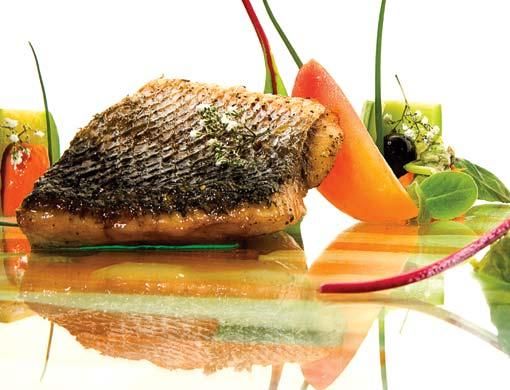Restaurants in Dubai offer many exotic cuisines, yet most people never stray from dishes they are familiar with. Some of the city's top chef's explain why.
With its varied ethnic food restaurants, it should be the norm for people in Dubai to pop into one and order an exotic dish for dinner. But not many people do it. The majority still stick to their traditional favourites instead of exploring foreign cuisines. What stops people from stepping out of their comfort zone? Is it the lack of knowledge of other cuisines?
New adventure
"Though Dubai's clientele includes the adventurous sort, ready to experiment with new cuisines, it also has its traditional diners. With traditional cultures, people get used to certain cooking styles and ingredients. For some, it's not easy to open up to new flavours," says Andrea Ferrero, chef at Vivaldi, the Italian restaurant at Sheraton Dubai Creek.
"For example, Asian food is traditionally based on spices and coconut-based curries. As a result, the Asian palate may not be open to sampling a cheese fondue. Likewise, Westerners in general have breads and cheese as part of their staple diet. Their palates are not used to spicy flavours. Some may regard spicy food as being too overpowering," he says.
Vincy Paul, an Indian living in Dubai, agrees. "Just like some foreigners who cannot endure hot and spicy Indian curries, I have a problem with the raw meat used in some foreign cuisines. Also, since I am not familiar with the ingredients used in other cuisines, I usually stick to Indian food whenever we eat out," says Paul.
So will knowledge of ingredients used in a dish serve as the first step towards trying it out?
Chef Ferrero thinks it helps. "Before trying out a new cuisine, you should have an idea of it's origin, the type of ingredients used and the preparation methods, so that you know what to expect. Once curiosity is triggered and you have shown interest in sampling a new cuisine, other questions arise such as the level of spiciness, saltiness, richness, etc. Then move on to bigger questions such as whether the cuisine works best with chicken, beef, lamb or seafood. People also like to know about signature dishes in any type of cuisine before trying it out."
Culinary confusion
Head Chef Montri Jiretitikankit at the Thai restaurant Sukothai at Le Meridien Dubai, is of the same opinion. He feels research goes a long way in clearing misconceptions. "People who do not know much about Thai food will not always know what qualities to look for and may not realise if a dish is well flavoured or not. You need to understand what the key ingredients are for a particular cuisine. For instance, people who have never eaten Thai food have a misconception that Thai cuisine is mainly hot and spicy. But the truth is that some dishes are sweet and some can be made less spicy."
Understanding cultures
However, Chef Masahiro Kinoshita at Kiku, Le Meridien Dubai's Japanese restaurant, believes understanding the culture, or the milieu in which the cuisine is set, is as vital as understanding the cooking style and type of ingredients used. "Food is strongly linked to cultures. Culture explains the rituals connected to food and provides an opportunity to fully experience the meal."
Kinoshita adds, "It is always good to know if the cuisine agrees with your preference before you indulge. Some people are not familiar with uncooked foods, creamy sauces, spicy foods, etc. These are particulars to be considered before trying a new cuisine."
And you thought you could just walk into a restaurant and start trying out new cuisines? Well, that's also possible, provided the restaurant's staff are capable of guiding a novice in his or her foray into a new cuisine. But will just gathering knowledge about a new cuisine, its cooking style and ingredients prepare you for a night out at an ethnic food restaurant? Or do you need more, such as a streak of adventurism?
When there's the urge to explore and appreciate different cuisines of the world, everything else becomes secondary. Then does it matter whether or not you know the ingredients of a dish.
Rose Espabillo, a self-confessed foodie from the Philippines says, "Everything boils down to your personality, lifestyle and culture. I lived in Hong Kong where I was exposed to many cuisines. I experimented a lot with food. In the Philippines, eating out is a part of our culture. With travel exposing people to various cultures, they are opening up to new choices."
Yet in a cosmopolitan city such as Dubai, only a small number of people are ready to try out foreign cuisines. Why? "Interest in new cuisines is a worldwide trend, but it attracts only a niche clientele. This is not particular to Dubai. Even in Europe, new cuisines started to become popular only about three years ago," says Ferrero.
That explains why the trend hasn't taken root among the majority. With new cuisines in the introduction phase of their service life-cycle – still just appealing to the 'innovator consumer' it will be some time before – the rest of the population takes to experimenting. Until then, it's up to the early movers to keep the trend alive.



